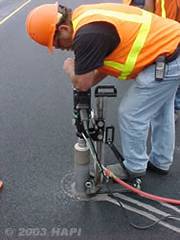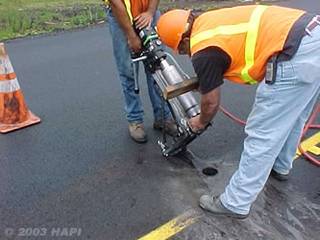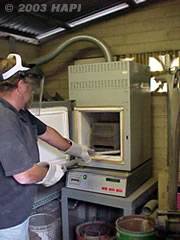Quality has become one of the most important consumer decision factors in the selecting among competing products and services. This is true not only for individual consumers but also for large corporations, government organizations and the taxpaying public as a group. In its broadest sense, quality is a degree of excellence: the extent to which something is fit for its purpose. In the narrow sense, product or service quality is defined as conformance with requirement, freedom from defects or contamination, or simply a degree of customer satisfaction.
|
|
|
AASHTO and the FHWA subscribe to definitions that designate “quality assurance” as an all-encompassing term, to include “quality control”, “independent assurance” and “acceptance” as its three key components (TRB, 1999[1]):
- Quality assurance. All those planned and systematic actions necessary to provide confidence that a product or facility will perform satisfactorily in service. Quality assurance addresses the overall problem of obtaining the quality of a service, product, or facility in the most efficient, economical, and satisfactory manner possible. Within this broad context, quality assurance involves continued evaluation of the activities of planning, design, development of plans and specifications, advertising and awarding of contracts, construction, and maintenance, and the interactions of these activities.
- Quality control. Those quality assurance actions and considerations necessary to assess production and construction processes so as to control the level of quality being produced in the end product. This concept of quality control typically includes sampling and testing by the contractor to monitor the process but usually does not include acceptance sampling and testing by the agency/owner. Also called process control.
- Acceptance. Sampling, testing, and the assessment of test results to determine whether or not the quality of produced material or construction is acceptable in terms of the specifications.
- Independent assurance. A management tool that requires a third party, not directly responsible for process control or acceptance, to provide an independent assessment of the product and/or the reliability of test results obtained from process control and acceptance testing. The results of independent assurance tests should not be used as a basis of product acceptance.
Quality control, acceptance and independent assurance are wholly separate components of quality assurance. It is difficult, if not impossible, to influence one component, solely through actions within another component. For instance, acceptance procedures are essentially monitoring methods used to determine whether or not a particular process is meeting quality standards. As such, they can be used to accept or reject material based on its quality but they should never be used as a method to control or improve quality; quality will not necessarily improve based on increased or stricter monitoring alone. In short, no amount of inspection changes the quality of a product or service (IQA, 2001). Quality control (process control) is used to control and systematically improve quality. Furthermore, independent assurance test results should not be used for acceptance or quality control. If they are, the tests are no longer independent and should not be used as if they were.
- TRB. (1999). Glossary of Highway Quality Assurance Terms. Transportation Research Circular, No. E-C010. Transportation Research Board, National Research Council. Washington, D.C.↵



